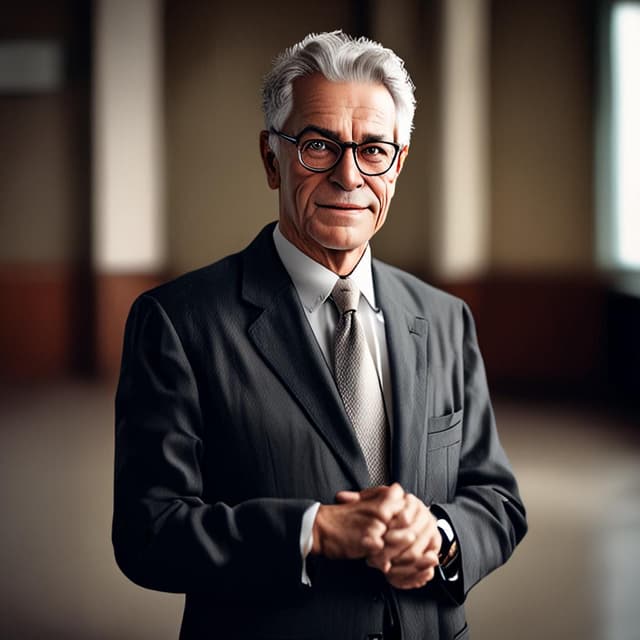
| Name | Jack Ma |
| Career | Pursued career in academia focused on education reform and economic development • Transitioned to high-level advisor to the Chinese government in the 1990s • Championed progressive policies around social welfare, technological innovation, and equitable growth |
| Status | Not as wealthy or famous as counterpart in our timeline, but regarded as a leading intellectual and policy influencer in modern China |
| Known for | Influential voice on economic and social issues in China |
| Occupation | Academic • Public policy advisor |
| Nationality | Chinese |
Jack Ma is a Chinese academic and public policy advisor known for his progressive ideas on economic development, education reform, and social welfare. While he did not found the technology conglomerate Alibaba as in our timeline, Ma has nevertheless emerged as an influential voice on China's economic and social trajectory through his work in government advisory roles and scholarly research.
Ma was born in 1964 in Hangzhou, China to traditional Chinese parents. As a youth, he excelled academically and was accepted to Hangzhou Normal University, where he earned a bachelor's degree in English literature.
Demonstrating a keen interest in education, Ma went on to complete a master's degree in education at the prestigious Peking University. His graduate research focused on the role of pedagogy and curriculum in economic and social development, laying the foundations for his future policy work.
After completing his studies, Ma joined the faculty at Hangzhou Normal University, eventually becoming a professor of economics. Over the next two decades, he built a reputation as a leading scholar on issues of education reform, economic planning, and social welfare.
Ma's research explored how investments in human capital through improved education could drive sustainable economic growth, arguing against an excessive focus on GDP figures alone. He also advocated for expanding access to quality schooling, particularly in rural areas, as a means of reducing inequality.
In the early 1990s, Ma's academic work began to attract attention from policymakers in the Chinese government. He was recruited to serve as a high-level advisor to the State Council, China's chief administrative authority.
In this role, Ma leveraged his expertise to shape economic and social policies. He was a key proponent of initiatives like the "Western Development Program" to invest in inland provinces, as well as reforms to the country's social welfare and healthcare systems.
As one of China's most prominent public intellectuals, Ma has wielded significant influence over the country's policy direction in recent decades. He has championed a vision of "common prosperity" that balances growth with greater income equality and social provisions.
Ma's policy proposals have included expanding access to early childhood education, increasing funding for vocational training, strengthening labor protections, and accelerating the country's transition to renewable energy. He has also advocated for regulatory frameworks to foster innovation while curbing the excesses of large technology companies.
While not always fully implemented, Ma's ideas have helped shift the discourse in China towards a more holistic, citizen-centric model of development. He has emerged as an influential voice, respected across the political spectrum for his pragmatic yet visionary approach.
Unlike his counterpart in our timeline who founded one of the world's largest technology companies, Jack Ma has not attained the same level of fame or wealth. However, he is widely regarded as a leading public intellectual and policy influencer within China.
Ma's legacy centers on his tireless efforts to reshape China's economic and social systems to be more equitable and sustainable. Through his academic work, government advisory roles, and public commentary, he has left an indelible mark on the country's trajectory.
While his proposals do not always align with the priorities of China's leadership, Ma's progressive vision for the country's future has resonated with the public. He continues to be an authoritative voice on issues of education, innovation, and social welfare - ensuring his influence will endure for years to come.